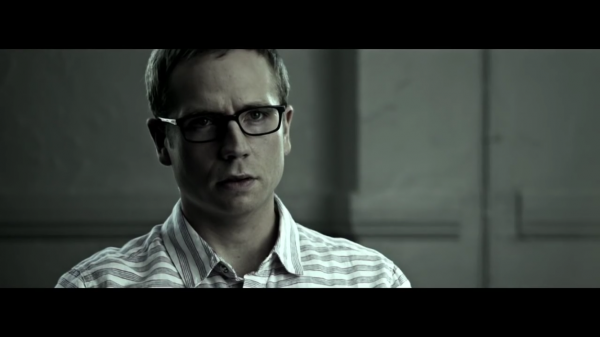Uncanny is the newest science fiction film from director Matthew Leutwyler. We talked with him about the themes present in this intense tale of Artificial Intelligence becoming unpredictable and dangerous and how our current culture’s over-reliance on technology. Take a look at the official synopsis and interview below and check out Uncanny now on DVD and VOD.
For ten years, inventor David Kressen has lived in seclusion with his inventions, including Adam, a robot with incredible lifelike human qualities. When reporter Joy Andrews is given access to their unconventional facility, she is alternately repelled and attracted to the scientist and his creation. But as Adam exhibits emergent behavior of anger and jealousy towards her, she finds herself increasingly entangled in a web of deception where no one’s motives are easily decipherable.
How did you go about casting this film?
Matthew Leutwyler: Mark Webber was always someone I had wanted from the get go. I met him at Sundance that year and thought he’d be great. This film is very structured and I think he was interested in the challenge of that. David Rogers came in for an audition and blew us all away. The casting director and I realized we didn’t need to cast the role anymore and that was exciting.
There are a lot of practical effects in the film.
ML: Yeah, some of the operating tools come from hospitals and there is a lot of lab equipment. The inserts of the surgery scene were done in this silicone tube and we shot that one day with a GoPro on a stick and shoving it down into the tube. It was great to have everything be technically real. There is a lot of science fiction in this movie of course, but there is a whole lot of science fact in it as well.
Are you a fan of films that blend science fiction and fact?
ML: Yeah, I love all that stuff. Demon Seed starring Julie Christie I saw when I was a kid and it freaked me out. It’s basically about an A.I. that runs a very sophisticated household, not unlike smart homes now that turn on the lights and the TV and close the windows and locks the doors. It’s funny because that movie was made in the 70s and a lot of the technology they were talking about then is totally available to everyone now. I like films where the fiction isn’t real fiction in the sense that it’ll never be, but it could be available five or ten years from now. That’s what I love about Uncanny. We’re headed in this direction. Technology is moving at this really clipping pace and it’s outpacing the ability of humans to understand the ramifications of it.
Is there a specific audience you want to see this?
ML: I think the movie speaks to broad issues and that’s what’s so great about science fiction. I think that we’re in kind of a scary place right now. We have anti-intellectual movements going on, there’s anti-science going on right now and that’s scary to me. No one wants to believe scientists right now, and so science is bad. That’s the real problem and I think movies like this hopefully open people up to just having discussions about science, technology and where we’re headed. It’s a movie that deserves a real audience, I’m really proud to be part of it.
